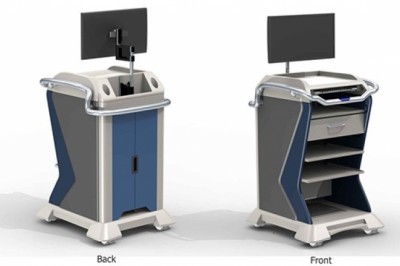views

Everything You Should Know About Periodontal Disease: The Major Risk Factor for Tooth Loss
Most people think tooth decay is the main cause of tooth loss. But gum disease poses a significantly higher risk of tooth loss than tooth decay. One of the reasons is that people with decay usually know about their condition because cavities cause sensitivity as well as discomfort and visual changes. Advanced tooth decay can even cause significant pain, forcing patients to seek emergency dental care regardless of the dental phobias.
Unlike tooth decay, gum disease may not cause symptoms until the advanced stage, when it is already impossible to preserve the tooth.
Learn more about gum disease to preserve your dental health.
Why is gum disease so dangerous?
Gum disease can manifest itself in a variety of ways. Your teeth may seem healthy and don’t produce discomfort. But in fact, you may be suffering severe dental problems. This happens because gum disease attacks the structures around your teeth rather than the teeth themselves. This might give you a false sense of confidence that your teeth and gums are healthy.
The early indicators of gum disease are extremely simple to overlook or dismiss. Gum bleeding is one of the most prevalent symptoms. If your gums are bleeding when you brush your teeth, it's easy to believe that you scrubbed your teeth too hard and that everything is good.
Although it's possible that you're cleaning your teeth too hard, gum disease is considerably more likely to be the cause of the bleeding. Your gums, the bone around your teeth, and the ligaments that connect your teeth to their bony tooth sockets might all be damaged if you don't get timely medical help.
What can cause gum disease?
The most common cause of gum disease is poor oral hygiene. Because of poor dental hygiene, the bacteria in your mouth may accumulate to unmanageable levels, resulting in an infection that your body's immune system is unable to treat. When this happens, your gums become weak and inflamed.
Plaque bacteria can build up on the surfaces of your teeth and gums if you don't brush them at least twice a day and floss once a day. What's more, plaque may quickly harden and turn into calculus. This is a material that forms in the areas where your teeth meet your gums and in between your teeth, where brushing is more difficult. Calculus and bacteria will continue to infect and irritate your gums. It is impossible to get rid of callus with help of home remedies. For this reason, it is crucial to visit a dentist for professional dental cleaning.
What other symptoms may cause gum disease?
As the gum disease progresses, you'll find that the symptoms get worse. In addition to bleeding, your gums will become red and swollen. Pressing on them may cause pain and discomfort. The bacterial infection destroys your gums, causing them to pull away from your teeth or recede. Because of bacteria overgrowth, you may the smell from your mouth may become unpleasant.
As the bone around your teeth deteriorates, your teeth will eventually become loose. Gum disease at this stage might have a negative impact on your overall health, especially if you have any other health issues.
How to prevent gum disease?
Gum disease can be easily avoided with adequate dental care, which includes professional cleanings and regular dental exams. But through home dental care is the most important in preventing gum disease.
Even if your teeth appear to be in good shape, you should see a dentist every six months for regular examinations and cleanings. Regular cleanings remove any hardened plaque, and your hygienist may advise you on how to enhance your at-home brushing and flossing practice.












